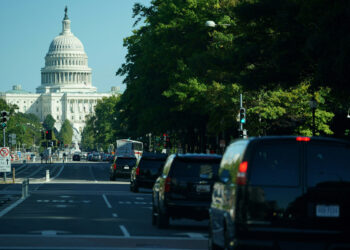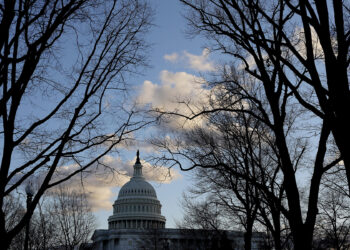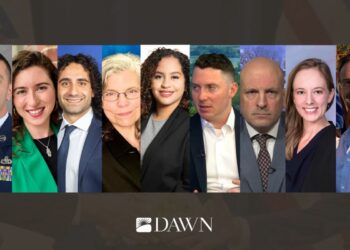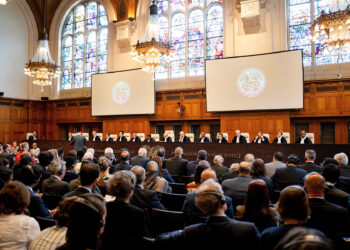Nine years after his unjust detention, father of three disabled sons and his family have endured enough suffering. The U.S. should invoke the Khashoggi ban on perpetrators.
عربی
(Washington D.C., July 22, 2021) – The UAE authorities should release political reformer Abdulsalam Mohamed Darwish al-Marzooqi, 50, who has been detained since July 23, 2012, and allow him to unite with his family, with whom they have not allowed him communication for five years, said Democracy for the Arab World Now (DAWN) today.
DAWN has published a detailed case study of al-Marzooqi, including new information about his arbitrary arrest, torture, and ill-treatment in detention, unfair trial, and the harassment and rights violations to which UAE authorities have subjected him and his family. DAWN also disclosed never before published information identifying the UAE government officials involved in al-Marzooqi's torture and prosecution, urging the international community to shun them.
"Abdulsalam al-Marzooqi was a respected educator, celebrated public servant and loving father when UAE's State Security arbitrarily arrested him, disappeared him, and tortured him for close to eight months before putting him on trial," said Sevag Kechichian, Gulf Researcher at DAWN. "Instead of releasing him and holding his torturers accountable, like any real court of law would do, UAE's Union Supreme Court sentenced him to 10 years in prison and three years of probation merely because he advocated for urgently needed political reforms."
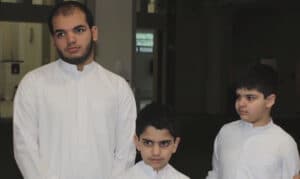
State Security agents in civilian clothes and without an arrest warrant arrested al-Marzooqi around 11 pm on the night of July 23, 2012 when he was on his way home. They then brought him handcuffed to his house to search it around 2:00 am on July 24, 2012.
UAE State Security forces held al-Marzooqi incommunicado for 21 days, in solitary confinement and at an undisclosed secret detention center, before allowing him a short, approximately two-minute, call to his family. They kept him in solitary confinement in the secret detention facility for the first seven and a half months of his detention before transferring him to al-Razeen prison in Abu Dhabi on March 9, 2013, where he remains.
At his ninth trial session on May 7, 2013, al-Marzooqi described his torture and ill-treatment by prison authorities who denied him sunlight exposure, exercise, adequate clothing, newspapers, books, pens, and paper. On numerous occasions, the prison authorities deprived him of sleep by exposing him to bright fluorescent lighting for hours without end and deliberately keeping his prison cell temperature very cold. State Security agents and prison authorities threatened to cut off his diabetes and other medications. They also threatened al-Marzooqi's wife and daughters with imprisonment if they publicized his detention conditions in al-Razeen or criticized any government institution or official.
Among the officials implicated in al-Marzooqi's prosecution, torture and inhumane detention are Ahmed Rashid al-Dhanhani, Acting Advocate General, who led the prosecution's case and asked the court to impose the "harshest sentence" on al-Marzooqi and others, and who initially refused to allow al-Marzooqi access to the prosecution's "evidence" against him.
DAWN also identified the role of Judge Muhammad Hamad Abd al-Qadir of UAE's Union Supreme Court, who did not investigate al-Marzooqi's allegations of torture and extended al-Marzooqi's pretrial detention five times, for three of which without requesting al-Marzooqi's or his lawyer's presence as required by law and even though he knew that the State Security held al-Marzooqi in an unofficial detention center, in violation of UAE law.
DAWN additionally documented the role of Judge Falah al-Hajri who, together with judges Abdul Rasul Tantawy and Abdulqadir Rasul, convicted and sentenced al-Marzooqi and 68 others at the same trial. Other involved officials include, former President of the Union Supreme Court Judge Abdul Wahab Abdool, former Attorney General Salem Saeed Salem Kubaish, prosecutor Sar Saif al-Naqbi, Captain Ali Saif, Officer Ghaya Khelfan, and al-Rzeen Prison Warden Suhail Matar.
"The roles of these prosecutors, judges and other officials in al-Marzooqi's abuse deserves condemnation and scorn around the world, and governments and organizations should ban them from the privileges of traveling and engaging with the international community," said Kechichian. "The UAE government can get away with its machinery of repression because they have hired help like al-Dhanhani, Abdul al-Qadir and others,to abet their abuses."
Soon after his detention, the UAE authorities prevented al-Marzooqi and his family from accessing his pension funds. In December 2016, the UAE Consulate in Boston informed al-Marzooqi's family that they will no longer receive payments for the disability treatment of al-Marzooqi's children at Boston Children's Hospital.
The UAE authorities revoked his children's citizenship in 2017 and confiscated the identity card of his daughter, the only family member remaining in the UAE since July 2016, preventing her from visiting him because prison authorities require identity cards for prison visitors. Since May 2017, the al-Razeen prison authorities have prevented all of al-Marzooqi's family who are abroad from calling or receiving phone calls from him.
"As if torturing al-Marzooqi and locking him up behind bars for a decade were not enough, the UAE authorities have punished his entire family to make them all suffer, revoking the children's citizenship and rendering them stateless," said Kechichian. "The U.S. government needs to impose the Khashoggi ban on UAE officials who acting on behalf of the UAE government engaged in counter-dissident activities by revoking Marzooqi's children's citizenship and cutting off the medical aid to his three disabled sons when the family escaped persecution and took refuge in the U.S."
In September 2020, Jim McGovern, a U.S. congressman who represents the second district of Massachusetts and is co-chair of the Tom Lantos Human Rights Commission, called for al-Marzooqi's release and said that al-Marzooqi's human rights "have been violated repeatedly since his warrantless arrest in 2012."
The UAE authorities, who are close allies of the U.S. and benefit from U.S. political and military support, did nothing. The UAE has been U.S.'s single largest export market in the Middle East and North Africa region for twelve consecutive years, and a top U.S. arms importer.
Until early this year, it benefited from direct U.S. military support for its war in Yemen and continues to use U.S. weapons to carry out war crimes in Yemen and Libya. The UAE has also benefited from the lack of U.S. scrutiny to crack down on dissent within its borders and across the Middle East, especially in the aftermath of the "Arab Spring" uprisings.
"If the Biden administration is serious about promoting human rights and democracy, it must begin by ending its military support for 'allies' like the UAE or face the fact that its democracy and rights credentials equal that of its predecessor," said Kechichian. "As long as people like al-Marzooqi continue to suffer in the prisons of governments the U.S. protects, U.S. foreign policy will continue to be perceived as hypocritical, unprincipled, and value-free."
Culprits
DAWN is calling on the public to provide more information on the following perpetrators and others directly involved in violating al-Marzooqi's rights:
Acting Advocate General Ahmed Rashid al-Dhanhani: led the prosecution's case and asked the court to impose the "harshest sentence" on al-Marzooqi and others. Initially refused to allow al-Marzooqi access to the prosecution's "evidence" against him and his family to visit him.
Former Attorney General Salem Saeed Salem Kubaish: oversaw the work of al-Dhanhani, in leading the prosecution of al-Marzooqi and his co-defendants for their peaceful activism.
Prosecutor Saqr Saif al-Naqbi: the prosecutor who looked the other way when confronted with allegations of torture and interrogated al-Marzooqi and coerced him to sign documents containing al-Marzooqi's alleged "confessions" without allowing him to read the content.
Judge Muhammad Hamad Abd al-Qadir: the judge at Union Supreme Court who did not investigate al-Marzooqi's allegations of torture and extended al-Marzooqi's pretrial detention five times, for three of which without requesting al-Marzooqi's or his lawyer's presence as required by law and even though he knew that the State Security held al-Marzooqi in an unofficial detention center, in violation of UAE law.
Judge Abdul Wahab Abdool: former President of the Union Supreme Court in the UAE who ignored the appeal by al-Marzooqi's lawyer against extending al-Marzooqi's pretrial detention.
Judge Falah al-Hajri: the presiding judge at the Union Supreme Court who convicted and sentenced al-Marzooqi and 68 others, and ignored allegations of torture and mistreatment.
Judge Abdul Rasul Tantawy: an Egyptian appeals court judge and one of the three judges of the judging panel who convicted and sentenced al-Marzooqi and 68 others.
Judge Abdulqadir Rasul: the third member of the judging panel who convicted and sentenced al-Marzooqi and 68 others. His nationality is unknown.
Suhail Matar: al-Razeen Prison Warden who issued arbitrary orders to harass and ill-treat the prisoners and their visiting families.
Captain Ali Saif: the State Security officer who arrested al-Marzooqi without an arrest warrant and led his house search without a search warrant.
Officer Ghaya Khelfan: the UAE Policewoman who led the female unit searching al-Marzooqi's house.
Photo Credits: DAWN
